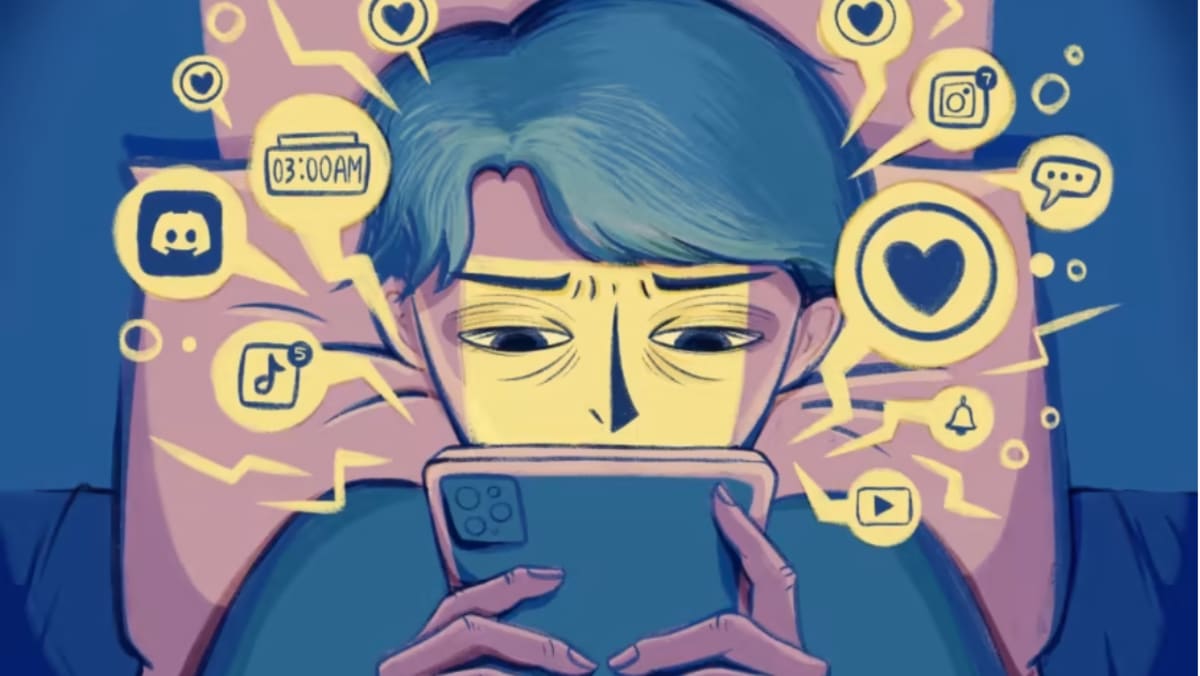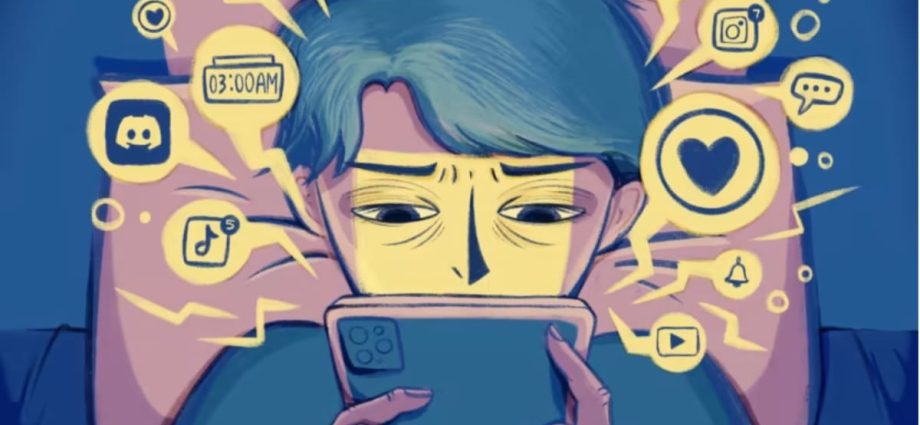
While the youths told TODAY that they are aware of how social media has impacted their mental health, none of the other teenagers, apart from Natalie, have completely stopped using social media, opting instead to take breaks or create their own boundaries where necessary.
Josiah told TODAY that his internet addiction has “definitely decreased” his attention span.
“You just know that at the flick of a button, you can just find something that you may find entertainment in, for a couple of seconds.”
He added that doing his homework, or looking at a piece of paper which he could not scroll, had become “so boring and mindless”.
While Josiah said that going for therapy has helped him to manage his internet addiction — he now tries to limit his screen time, including not using his devices in the morning — he has not stopped using them completely.
He finds that social media could still be a good platform for keeping in touch with friends whom he does not see often, or who do not live in the same country.
Today, Josiah, who has completed his therapy sessions, also volunteers with Impart to help children build positive coping skills and mental resilience, through sports.
For 14-year-old Aqil Ahdan, a Secondary 2 student, spending six to seven hours on social media daily is not out of the norm. He uses TikTok the most, followed by Instagram and YouTube.
While Aqil admitted that six to seven hours is “quite a lot”, he is not concerned and does not actively limit his time on social media, as he feels it does not affect his school work or physical health.
Instead of looking at the amount of time he spends on the apps, Aqil said that he is more cautious about what he posts.
He recalled an instance when he had uploaded video clips of himself on his TikTok account, only to have people he knew comment on the posts to body-shame how he looked.
“It made me feel insecure about myself, like I wasn’t a good person to be with.”
Aqil added that he got over these negative thoughts by taking a break from social media to exercise and focus on activities outside of the platforms.
Still, he eventually returned to social media since it still has its benefits, such as allowing him to learn stuff and gain new knowledge through the content viewed.
NO FORMAL DIAGNOSIS, INSUFFICIENT RESEARCH
Despite the growing body of evidence, experts told TODAY that social media addiction is currently not recognised as a mental health disorder in the Diagnostic and Statistical Manual of Mental Disorders, which provides mental health professionals in countries like Singapore and the United States with a standard classification of mental disorders.
“Hence, we can only highlight the impact of excessive social media use but we won’t be able to talk about diagnosis since it’s not a recognised disorder,” said Dr Ong of IMH.
The World Health Organization, which produces the International Classification of Diseases (ICD), has also not initiated any formal working committee to look into social media use disorder, said Ms Pang of Visions by Promises.
Ms Pang added that for a condition to be included in the ICD, it requires the gathering of sufficient research data, with consistent outcomes from around the world, about the condition’s diagnostic criteria, severity assessment and its treatment recommendations.
Not having a formal inclusion of the condition in the ICD may affect the consistency of its terminology, choice of diagnostic tools used and recommendations on treatments, she said.
Furthermore, while existing studies have drawn correlations between excessive social media use and its resultant negative impact on children and youths’ mental health, experts said that more research is needed for a conclusive look at its effects and to establish that social media is indeed having a detrimental impact on adolescents’ mental health.

